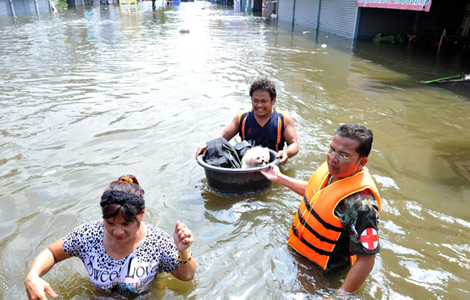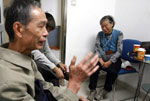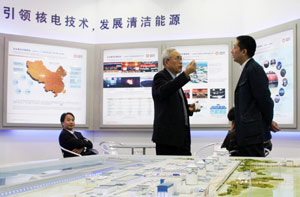Double-dip recession unlikely in China
Updated: 2011-10-24 14:14
(Xinhua)
|
|||||||||||
"Troika" shift gears
As the GDP growth moderated, the "troika" driving the economic growth, namely export, investment and consumption shift gears as export and investment slowed down while the consumption contributs more to GDP.
The main reason behind the fall of GDP growth lies in dwindling external demand and investment. September saw the trade surplus narrow for a second straight month to $14.5 billion with imports and exports faltered more than expected.
Exports in September rose 17.1 percent year-on-year, down from August's 24.5 percent.
For the time being, the world economy shows clear signs of downturn as the developed economies are struggling with debt problems and the emerging economies like India and Brazil are faced with high inflation pressures.
Adding to the woes, the fluctuating renminbi exchange rate and cash-strapped small and medium-sized enterprises are also a brake on the growth of foreign trade.
The 110th Canton Fair, which opened on Friday, has seen a reluctance on the part of both overseas buyers and Chinese exporters to confirm long-term orders, said MOC spokesman Shen Danyang said on Wednesday.
Zhang Yansheng, head of the Foreign Trade Research Institute of the National Development and Reform Commission (NDRC), is of the view that China's exports will encounter more uncertainties in the fourth quarter of this year.
Fixed-asset investment, a key driver behind economic growth, showed robust growth of 24.9 percent in the first nine months. The growth rate was 0.7 percentage point lower than that during the first six months, said NBS spokesman Sheng Laiyun in a press release.
Unlike the dual slowdown of export and investment, the country's retail sales grew 17 percent to 13.0811 trillion yuan in the first nine months from a year earlier, accounting for 47.9 percent of total GDP figure, which is 0.4 percent higher than that of first half year.
In September, the country's retail sales grew 17.7 percent from a year earlier and were up 1.35 percent from August, the NBS announced on Tuesday.
Analysts said that the nation should make renewed efforts to boost domestic demand as global economic prospects continue to dim.
Exports may contribute less to GDP growth in 2012, so domestic demand takes on greater urgency, Fan Jianping of the State Information Center said.
Liu Yuanchun, deputy head of the School of Economics of the Renmin University of China, said the government has attached great importance to expanding domestic demand, but it is not a short-term project.
"The future policies to enlarge domestic demand are expected to focus on improving residents' income and lowering taxes, including consumption tax and custom duties, but adjustment takes time," Liu noted.
Pan Xiangdong, chief economist of Yinhe Securities, pointed out that the key to expanding the domestic demand is to increase people's incomes and this will involve adjusting the distribution of national income by reforming the monopolized industry and reducing the income gap among various sectors.
Domestic consumption could be boosted next year by a recovery in car sales, said Wendy Liu, a Hong Kong-based economist with the Royal Bank of Scotland (RBS). "Car sales are predicted to grow by up to 20 percent next year, a sharp rebound from 5 percent this year," Liu said.










